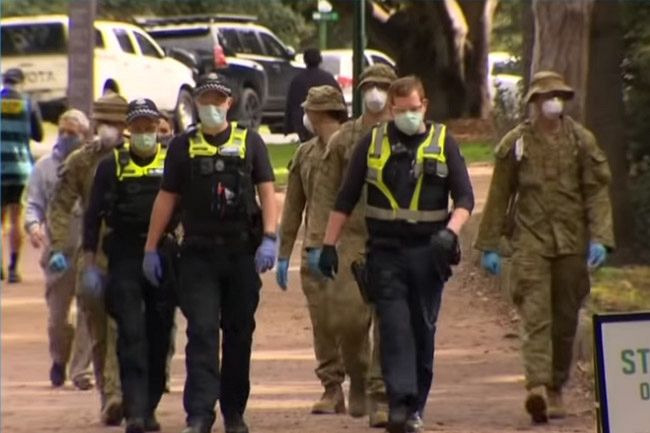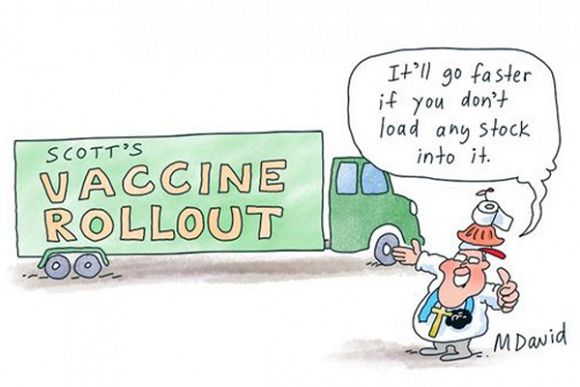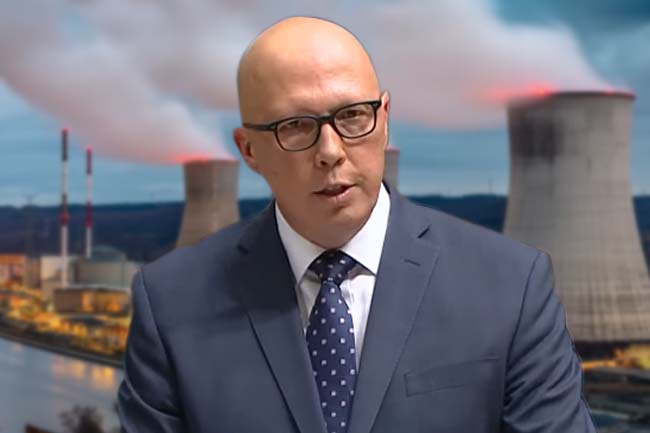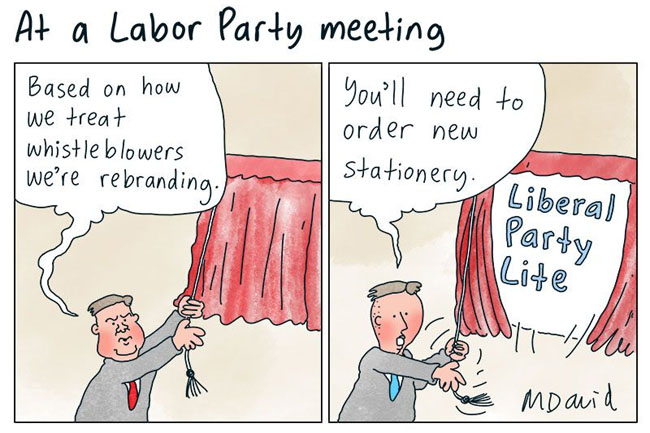The weakness of the Australian Government is on full display in southwest Sydney this week, disguised as a show of force.
The incapacity of NSW Premier Gladys Berejklian’s “gold standard” Government to contain the latest outbreak of COVID-19 has become a political liability for Prime Minister Scott Morrison. So, as has become standard in such situations, Morrison called in the army, offering 300 troops for what was described as a “crackdown” on compliance with COVID-19 regulations.
The practical impact of this deployment is virtually zero. The NSW Police Force has over 18,000 officers along with thousands of other employees who could assist with many of the routine tasks involved in compliance checking. There was no difficulty in mobilising a thousand officers to deter a repetition of the protests seen in Sydney. Beyond that, other states have called on State Emergency Services, Rural Fire Services and others. In this context, 300 people, more or less, is a rounding error.
The deployment of troops is an exercise in street theatre, but not a benign one. As the “crackdown” description suggests, the aim of the deployment was to increase pressure for compliance. But this pressure rests entirely on illusion.
The soldiers are unarmed and have no police or public health powers, meaning that they can do little more than tag along on police doorknocks. For practical purposes, they are civilians dressed in camouflage gear. However, residents faced with soldiers at the door could be forgiven for fearing for their lives, especially if they or their families have come here from countries where such fear would be entirely justified.
Putting a brave face on things, NSW Police Commissioner Mick Fuller said that they would double the effectiveness of the police they accompanied, though it is hard to see how. Pushing credibility even further, Fuller claimed the troops come with “an enormous amount of training”. In reality, their relevant training amounts to hastily organised briefing, which took, at most, a weekend.
Of course, our armed forces receive extensive training in the use of weapons, surviving in a hostile environment, detecting and neutralising threats and so on. But all of this is useless, or worse, in a task like contact tracing. The central requirement here is to encourage active cooperation from people who have done nothing wrong, except to live in a suburb bearing the brunt of the Government’s policy failure. Training in obeying orders rapidly and without question is unlikely to be helpful here.
All of this is before we consider the damage done to the armed forces when troops are used with the purported role of suppressing disorder. The current exercise is bad enough, but how long will it be before someone has the bright idea of using troops to suppress protestors? For that matter, what would happen if anti-lockdown groups decided to take their protest to the troops?
Presumably, at least some of the leaders of the Australian Defence Forces are aware of these dangers. But they have proved increasingly incapable of resisting government pressure to provide theatrical props for failed exercises in public policy.
From the Government’s viewpoint, whatever the dangers of politicising the armed forces, there seems to be no alternative. After decades of New Public Management, centred on the slogan “steering, not rowing”, the idea of the national Government actually doing anything is unthinkable. Tasks that can’t be avoided completely are shunted off to state governments, outsourced to private consultants or left to inadequately regulated private firms, such as those that operate in the aged care sector.
In the wake of the bushfire disaster, there were widespread calls for the national Government to develop its own capacity to deal with disasters that increasingly go beyond state boundaries. The result was the creation of the National Recovery and Resilience Agency, which claims to be driving efforts to reduce the impact of future disasters. But as with other recent national government efforts (some of which have turned out to be little more than opportunities for corrupt pork-barreling), its role seems to be confined to funding programs at hyper-local levels.
The total incapacity of the national Government has led, by default, to a pandemic response driven by state governments, notable for the lack of any kind of cooperation. In a world of increasing dangers, few of which can be dealt with by military force, we need a national government willing and able to take decisive action on its own account. A real National Disaster Relief Organisation would be a good start.
John Quiggin is Professor of Economics at the University of Queensland. His new book, The Economic Consequences of the Pandemic, will be published by Yale University Press in late 2021.
Related Articles
- Morrison's policy failures will be his undoing
- Public policy failure of Coalition's vaccine rollout
- Morrison’s recession: Australia’s worst since records have been kept
- Australia's disastrous trade decisions may take decades to repair
- How to build a strong Australian economy — swap Scott for Jacinda
 This work is licensed under a Creative Commons Attribution-NonCommercial-NoDerivs 3.0 Australia License
This work is licensed under a Creative Commons Attribution-NonCommercial-NoDerivs 3.0 Australia License
Support independent journalism Subscribe to IA.














